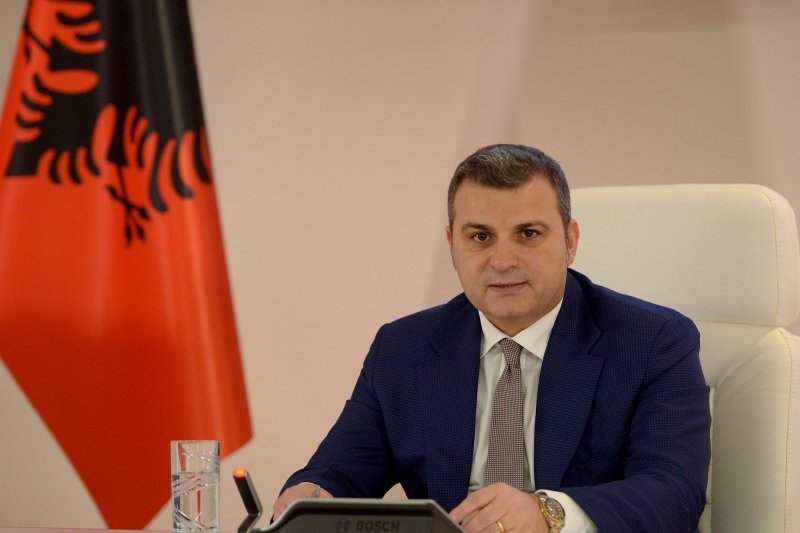Economy Expected to Record Fast, Stable Growth
Albania's central bank decided to keep its key interest rate unchanged at 0.5%, as it sees the current monetary policy stance as adequate for bolstering economic growth and for the stable return of inflation to target, central bank governor Gent Sejko said on Wednesday.
The central bank also decided to hold the interest rate on the overnight deposit facility at 0.1%, and the rate on the overnight lending facility at 0.9%, Sejko said in a statement.
The economy is expected to grow rapidly this year at 5%, a trend that will continue for the next two years, SejKo added.
The governor also said that "employment growth, increased exports and monetary stimulus have supported economic growth." The Bank of Albania assesses that all these three factors will be improving in the medium-term horizon.
In line with bank’s exceptions, Sejko said that the economic activity in Albania has been recovering in the first two quarters of 2021. According to INSTAT data, the Albanian economy grew by 5.5% in the first quarter of the year, while analysis of indirect data suggests even faster growth rates in the second quarter.
Inflation has pursued an upward trend in April and May. The average rate of inflation settled at 1.9% in April and May, notably above the average of the first quarter Inflation rose mainly due to the increase in food and oil prices.
Factors conditioning the stable return of inflation to target are being improved, but it is expected to converge to target in the medium term. The inflation is expected to return to its target during 2022.
The recovery of economic activity expanded on a broad base. In terms of aggregate demand, it reflected the expansion of consumption and private investments, increase of budget expenditures and the expansion of goods and services. In sectoral terms, it reflected the simultaneous expansion in production sector and services sector.
The improvement of economic activity is still not completely reflected in the labor market. According to INSTAT data, employment recorded an annual fall of 2.6% in 2021 Q1, while unemployment rate stood at 11.9%. These indicators suggest the Albania economy is still far from the complete normalization of its activity and simulating policies should continue to sustain this process.
Fiscal policy has continued to maintain a simulating nature during the first half of year. In parallel with fiscal stimulus, the accommodative monetary policy has enabled to create favorable financing conditions.
The improvement of loan demand and the favorable supply-side conditions have driven to a relatively fast growth of lending. Credit portfolio to private sector recorded an annual increase of 7.8% in May, from the average growth rate of 6.8% in 2020.
Judging on the factual trends of the economic and monetary developments, and their determinant factors, the Supervisory Council deems that the Albanian economy will record fast and stable economic growth rates in the medium-term horizon. The improvement of external environment, the reduction of uncertainty, the simulating fiscal-monetary policy mix and the strengthening of private sector’s balance sheets will underpin the economic growth. These factors are expected to boost the increase of: consumption; exports; and investments; as well as gradually increase incomes in all sectors of economy. The expansion of the demand will support the increase of employment, in turn, further rise in wages, and a gradual convergence of inflation to target within 2022.
In any case, the projections are based on assumption of avoiding the serious restrictions on the economic activity, due to further shocks from the pandemic. Nevertheless, the course of the coronavirus (COVID-19) pandemic and its impact on economy continue to remain source of uncertainty in economic forecasts.













